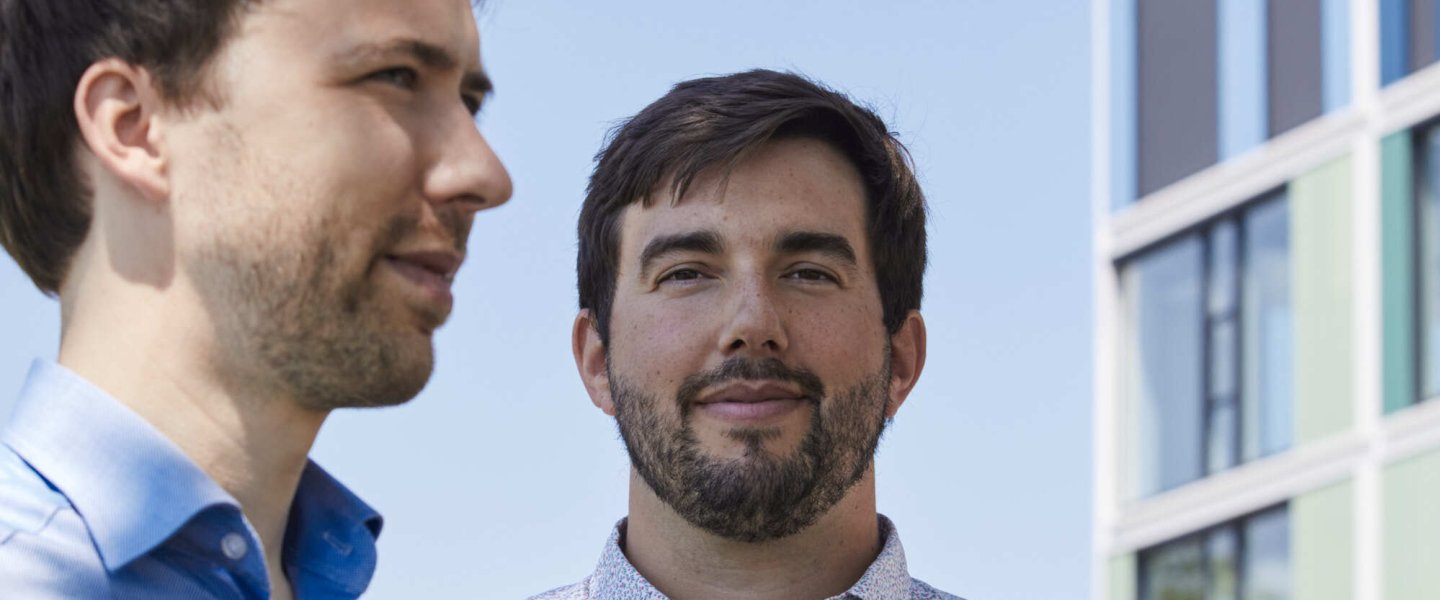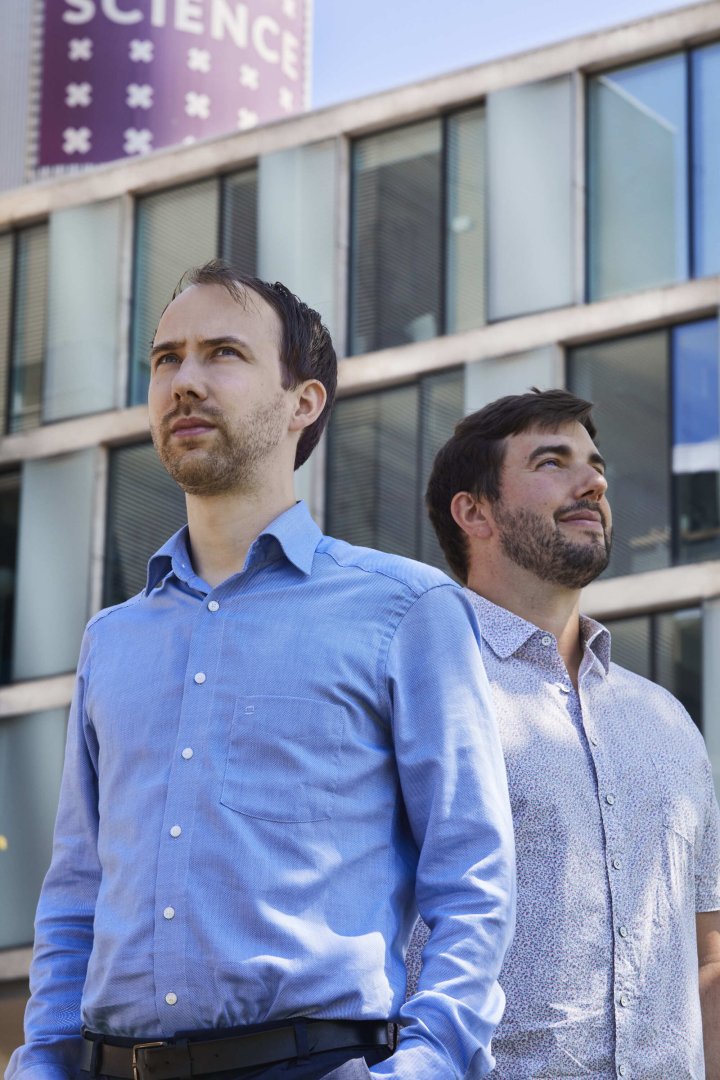
‘Partnerships are a very appealing option for businesses’
The UvA and Bosch have extended their partnership with the launch of Delta Lab 2. Herke van Hoof, former lab manager for Delta Lab 1, is now passing the baton to Eric Nalisnick. Below, the two Machine Learning Lab scientists discuss the partnership.
It’s becoming increasingly common for businesses and universities to work together on AI projects. The partnership between the UvA and tech company Bosch is one example. In 2017, they jointly opened the Delta Lab at the Science Park in Amsterdam. Over a four-year period, a total of 10 post-doctoral students and PhD candidates conducted research at the lab into Deep Learning and the application of AI to vehicles. Now, Delta Lab 2 will extend that partnership.
What exactly is the difference between Delta Lab 1 and Delta Lab 2?
Herke: ‘I think the biggest difference is on the organisational side. There was always an intention for the researchers at Bosch and those at the UvA to work closely together. But based on our experience with Delta Lab 1, we think we can improve our collaboration. So this time we’ve discussed in detail with Bosch what exactly the research topics are going to be. We then looked for PhD students based on that.’
Eric: ‘In the past we mainly discussed this with management at Bosch, but this time we’ve involved the company’s researchers from the very start.’
'Bosch hopes that some of them will stick around and start working there.’
So Bosch employs its own researchers. Why then would it enter into a partnership with the UvA?
Herke: ‘Bosch employs excellent researchers, each with their own area of expertise. But no company can cover every single area of expertise in-house. Here at the UvA we have some other, different in-house specialisations. So in that way we complement each other.
It adds up to a more complete team of researchers.’
Eric: ‘On top of that, here at the UvA about 25 percent of our research focuses on directly applicable knowledge, with 75 percent being more future-oriented. At Bosch it’s probably more of a 50-50 split.’
Herke: ‘It’s important also to remember that many companies are really eager to attract AI researchers. Over the course of the four-year research, our PhD students will be visiting the Bosch head office in Germany a number of times. Of course, Bosch hopes that some of them will stick around and start working there.’

And what’s in it for the UvA?
Herke: ‘That’s easy: more funding for research. There’s a shortage of people who specialise in Deep Learning. Working with Bosch has opened up 10 extra PhD places.
That means we can do more research. And it’s also useful for our students to get an insight into the problems that crop up when you put research into practice.’
‘When you do research in the lab, data sets can be neat and tidy. In the real world things can turn out very differently. Self-driving cars, for example, can get very confused if the environment in which they have to operate is very different to that in which they were trained. As a researcher, it’s good to be aware of that.’
Delta Lab is conducting a lot of research into self-driving cars. How long will it be before we can dispense with human drivers?
Eric: ‘It’s difficult to say. There’s certainly been a lot of progress in this area over the past 10 years. A decade ago, it would have been unthinkable to use a self-driving car outside the laboratory. That’s now possible, though there is usually a human driver there who can intervene if necessary.’
Herke: ‘We also shouldn’t get too obsessed with totally self-driving cars. The cars currently on the market already use a lot of AI. There’s the application that helps you park, for example. That’s Artificial Intelligence too. Lots of other applications are emerging.’
Are we likely to see more AI-focused partnerships between the business and research sectors in future?
Herke: ‘I expect so. Businesses are increasingly realising that AI is set to play a bigger role in future. They don’t always have in-house expertise for developing applied AI. Partnerships like Delta Lab are therefore a very appealing option for businesses.’
About Herke van Hoof and Eric Nalisnick
- Herke van Hoof works as an assistant professor at the UvA. He is part of the Amsterdam Machine Learning Lab. For the previous four years he was the lab manager at Delta Lab 1. More information on Herke’s personal page on the UvA.
- Eric Nalisnick works as an assistant professor at the UvA. He is part of the Amsterdam Machine Learning Lab. For the next four years he will be the lab manager at Delta Lab 2. More information on Eric’s personal web page.
About Delta Lab
- Read more about the UvA Bosch Delta Lab research group.
- News: UvA and Bosch continue collaboration with new research lab.